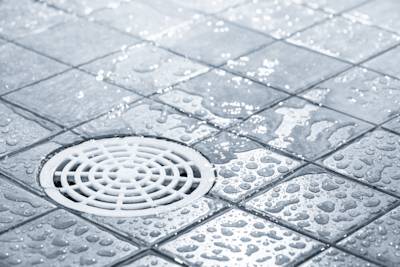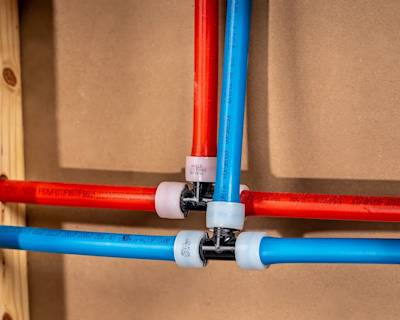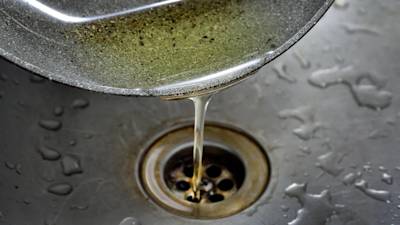When it comes to plumbing choices for your home, one of the options that you may be considering is PEX or Cross-Linked Polyethylene plumbing. And while there are some advantages to using PEX plumbing, there can also be some negatives. In this article, we're going to explore exactly why PEX plumbing might not be the best choice for your home and delve into the potential issues that may arise with PEX.
What Is PEX Plumbing?
Before we dive into the negatives of PEX plumbing, it’s important to understand exactly what it is. PEX plumbing is a type of flexible plastic tubing that is used in many modern homes instead of traditional copper or PVC. While it's relatively easy to install and can be cheaper than other materials, it also may not be the best choice for your home.
The Health Concerns Connected with PEX Plumbing
One of the biggest concerns associated with PEX plumbing is the potential for it to negatively impact health. Some research has suggested that PEX pipes can leach chemicals such as BPA and other toxins into the water that runs through them. These chemicals may pose health risks, especially to those with compromised immune systems. So if health and clean, safe water are your priority, one key reason to ask "why is PEX plumbing bad" could be the potential health risks it presents.
Lower Lifespan Than Other Materials
Another point of contention when it comes to PEX plumbing is its lifespan. When you're investing in your home's infrastructure, longevity is crucial. While PEX plumbing is cheaper upfront, the cost benefits may be negligible when you consider that it might not last as long as copper or other materials. PEX pipes have an average lifespan of about 40-50 years, while copper can last over 70 years. And if you have to replace your plumbing sooner rather than later, those savings can quickly disappear.
PEX Plumbing and Aesthetic Considerations
One often overlooked aspect of PEX plumbing's shortcomings is related to aesthetics. Traditional materials, especially copper, can be attractive and add a certain classic feel to a home. In contrast, PEX is purely functional and has an industrial look that many homeowners do not find appealing. If maintaining the aesthetic appeal of your home is important to you, PEX might not be your best bet.
PEX plumbing Sensitivity to UV Light
One important factor to consider is that PEX plumbing is sensitive to UV light. This means it can't be used in applications where it might be exposed to sunlight, a limitation that isn't present with other materials like copper or PVC. This sensitivity can hasten the degradation process, leading your plumbing system to fail prematurely.
The Environmental Impact of PEX Plumbing
Although PEX plumbing is popular due to its affordable price tag and ease of installation, it’s not the most eco-friendly option. Manufacturing methods involve the use of crude oil and create greenhouse gases, which in turn contribute to climate change. Furthermore, PEX isn’t easily recyclable, posing a significant environmental impact.
Difficulty in Recycling PEX Plumbing Materials
When it comes to considering why PEX plumbing might not be the best choice for your home, the recyclability of the materials is certainly a factor. Because PEX contains several layers of different materials, recycling them can be difficult or even impossible in some instances, creating waste and disposing of it can be problematic for your local environment.
Limited Use with Older Homes
If you have an older home, it’s important to know that PEX pipes may not be compatible with your existing plumbing configuration. PEX requires certain fittings and cannot be directly connected to a water heater. For these reasons, if you have an older home, the added redesigns and retrofitting may make PEX plumbing more trouble than it’s worth.
While it’s not definitively bad, PEX plumbing does come with a share of drawbacks, including potential health risks, a shorter lifespan, and less aesthetic appeal. It's important to weigh these negatives against the benefits - such as the lower upfront cost and ease of installation. But remember, the long-term health and value of your home are what’s most important. Therefore, it may be best to consider other alternatives to PEX plumbing for your home.
FAQs about PEX Plumbing: Why It Might be Considered Bad?
As plumbing technologies advance, PEX (cross-linked polyethylene) has grown popular for its flexibility, cost-effectiveness, and efficiency. However, several concerns tied to PEX plumbing give rise to questions on whether it’s bad for plumbing needs. The following frequently asked questions shed light on the potential downsides of PEX plumbing and other related matters.
Q1: Why is PEX Plumbing Considered Bad?
While PEX plumbing offers many advantages, several reasons might lead some to view it as 'bad'. The most significant concern is the health risks related to the plastic material's quality. Some PEX plumbing pipes can leach harmful substances such as BPA into the water supply, posing a risk to human health. Additionally, PEX pipes can be damaged by UV sunlight exposure and might not be suitable for outdoor use.
Q2: Does PEX Plumbing Affect Water Quality?
Yes, it can. Some PEX pipes can potentially leak toxins into the water supply. Chemicals like MTBE, ETBE, and TBA have been found in water samples taken from PEX pipes. While these chemicals may not cause immediate harm, long-term exposure might pose health risks. However, it’s worth noting that not all PEX piping brands exhibit these leakage issues.
Q3: Can PEX Plumbing Cause Health Issues?
As previously mentioned, if PEX pipes leak toxins into the water, long-term consumption might lead to health problems. One should always consider using PEX pipes that have passed rigorous testing and standards to ensure they do not release any harmful substances into the water supply.
Q4: Do PEX Plumbing Pipes Degrade Over Time?
Like all plumbing pipes, PEX pipes degrade over time. However, PEX pipes usually have a long lifespan, typically estimated to last for around 40-50 years. This lifespan can be shortened if the pipes are exposed to high-temperature water or direct sunlight incessantly.
Q5: Is PEX Plumbing Hard to Maintain?
On the contrary, PEX plumbing is generally easy to maintain. PEX pipes are resistant to scale and chlorine, therefore unlikely to corrode like copper pipes. However, since PEX pipes can be damaged by UV light, they might require careful handling and storage, especially in outdoor settings.
Q6: Can You Use PEX Plumbing in Cold Weather?
Yes, PEX pipes are suitable for use in cold weather. They are highly resistant to freezing and can expand and contract without bursting, making them excellent for residential plumbing in colder climates.
Conclusion
While there are some concerns surrounding PEX plumbing's safety and reliability, it’s important to understand that these mainly arise from a small subset of PEX manufacturers. Reputable brands of PEX pipes undergo stringent quality and safety tests to ensure their pipes are safe for consumers. Nevertheless, understanding these potential issues can help you make an informed decision about whether PEX plumbing is the right choice for your specific needs.
Summary
Ultimately, the question "why is pex plumbing bad" boils down to a few key issues. PEX plumbing is known for having a low resistance to UV light, which means it can't be used outdoors or in areas exposed to sunlight. This creates a limitation for its use and it cannot serve as a solution for all plumbing needs. The material is also prone to getting damaged easily, which can lead to long-term hassles, frequent maintenance, and costly replacements.
Another significant issue that further enforces why PEX plumbing bad is the concern surrounding water safety. This type of plumbing can leach substances into the water, which may not be safe for consumption. The plumbing systems might contaminate the water with toxic materials, thus posing a potential risk to health. This can be especially alarming for households with kids or members with weak immune systems.
The lack of sturdiness also contributes as to why is PEX plumbing bad for some homeowners. Unlike metal pipes, PEX pipes are not rigid which can be lackluster in supporting their own weight in certain installations. This might result in additional costs as homeowners may need to add a support system to prevent the pipes from sagging. While PEX pipes may seem cost-effective in the short run, the additional expenses and potential health hazards linked to its usage make it a less attractive option for many.
About KYPD Plumbing
Welcome to KYPD Plumbing, your trusted partner in everything plumbing in Nicholasville, KY! With years of industry experience under our belts, KYPD Plumbing serves our loyal customer base with passion and expertise. Whether it's routine maintenance, emergency fixes, or large-scale project installations, our professional team provides efficient, reliable solutions that meet your plumbing needs. We're not just a company— we're a caring part of the Nicholasville community, committed to ensuring the integrity of our neighbors' homes with good-as-new plumbing systems.
Tags: PEX plumbing, plumbing materials, plumbing issues,



































